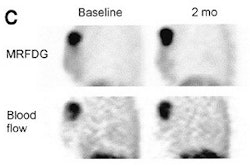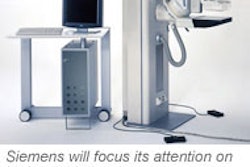A medical malpractice lawsuit against a Florida radiology group is now in limbo after one of the individual defendants sent a "threatening" article to a prominent radiologist who was testifying for the plaintiffs in her case.
The mailing sent to Dr. G.W. "Bill" Eklund, originator of the mammography displacement technique that bears his name and now a consultant based in Bellevue, WA, has also highlighted a larger debate in radiology: Are prominent mammographers contributing to the demise of their specialty by testifying against others in field?
That’s the position taken by radiologist Dr. Mark Klein of Washington, DC, in an August Diagnostic Imaging magazine article, titled "Say no to peers who weaken mammography." The article was mailed semi-anonymously to Eklund just before he was to testify in a case against the Boca Radiology Group of Boca Raton, FL.
In his first-person column, Klein noted that studies have shown that up to 21% of breast cancers are missed on mammograms read by experienced radiologists. Yet, he maintains, mammography’s inherent limitations are not acknowledged by the courts, or by the experts who testify for malpractice plaintiffs.
"You might be surprised by the identity of some of these radiologists. Not a few are academic mammographers, some retired from active practice and some not," Klein wrote. "All too often, members of this group are willing to hold our feet to the fire for misses they might have been guilty of in clinical practice themselves."
And, Klein wrote, radiologists should "shun" those who testify for plaintiffs in medical malpractice cases.
"Let them and their colleagues know that you know what they do," Klein wrote. "Vote with your dollars; refuse to attend meetings in which they participate and raise your voice against this small but deadly group who threaten our ability to do our jobs."
In an interview with AuntMinnie.com, Klein said his column was referring to a group of radiologists and not specifically to Eklund, who is affiliated with the University of Illinois College of Medicine in Peoria and the Medical College of Wisconsin in Milwaukee. Eklund is a frequent presenter at CME meetings.
Eklund was called as an expert witness for the plaintiff in a lawsuit against Boca Radiology Group. The lawsuit was filed by Marsha Gilarmo, who charged that radiologists at Boca missed a cancer on a mammogram. Gilarmo reportedly underwent a double mastectomy after her cancer was ultimately discovered.
Eklund received Klein’s article in an envelope bearing the return address of Boca Radiology Group’s medical director, who denied sending it. Boca radiologist and malpractice defendant Dr. Carol Adami subsequently admitted mailing the article.
Attorneys for the plaintiff argued that Adami’s action was tantamount to witness tampering, and asked Miami-Dade Circuit Judge Gill Freeman to sanction the defense. Adami’s attorneys disagreed, noting that Eklund had testified in the case just three weeks after receiving the article.
"The fact that Dr. Eklund has testified, offered his opinions, and offered no indication that he was harassed, influenced, or intimidated, negates any suggestion that the mailing of the article is relevant," wrote Adami’s attorney Cary Capper.
But just as the parties were meeting to figure out a schedule for deciding the sanctions motion, the case became truly muddled. In a status conference, Judge Freeman stated that she believed Adami’s action was a "wrongdoing" and "threatening," leading the radiologist’s attorney to believe the judge is prejudiced against his client.
Just before Thanksgiving, Capper filed a motion asking the judge to remove herself from the case. Three weeks later, the case was still in limbo as the parties waited for the judge’s decision.
Capper said neither he nor Adami could discuss the case while the recusal motion was pending. Attorneys for Gilarmo did not return phone calls seeking comment.
Reached at his Bellevue, WA, office, Eklund said he wouldn’t comment while involved in the pending case. Nonetheless, he defended himself in a brief interview, stating that he doesn’t solicit malpractice cases but is frequently contacted by attorneys.
"I would be happy to see it go away," Eklund said of the expert testimony work, which reportedly pays from $300 to $500 per hour.
For his part, Klein said he didn’t know what to make of the fracas raised by his article, but he stood fast in his opinion.
"If you have a test where the standard of care is a miss rate of 21% among good mammographers, then it’s unconscionable to present yourself as an expert claiming that you would have seen an abnormality that somebody has missed," said Klein.
"The increasing litigation in mammography, coupled with poor reimbursement, is driving many radiologists from the field," he concluded.
By Tracie L. Thompson
AuntMinnie.com staff writer
December 16, 2003
Related Reading
Malpractice fears may initiate more false-positive mammograms in North America, September 16, 2003
G.O.P. resurrects malpractice caps in Senate, July 9. 2003
AMA expands tort reform options, but wants cap on non-economic damages, December 10, 2003
Residents leery of careers in breast imaging, December 15, 2003
Making mammographers better: The last link in the imaging chain, August 29, 2003
Copyright © 2003 AuntMinnie.com



















